Here you’ll find 10 tips for new vegans from a plant-based registered dietitian. Whether you’re switching to a plant-based diet, or considering eating more plants, I hope that these nutrition tips will offer you guidance in building sustainable habits.
There’s a lot to learn when making the switch to plant-based eating, but it doesn’t have to be as complicated as it looks. With some learning and preparation, a plant-based diet can be exciting and sustainable long-term.
Before we get into the nutrition tips, I do want to acknowledge that there is a difference between veganism and plant-based eating. Veganism is an ethical movement against the exploitation and harm of animals that goes beyond food. Plant-based eating is only one part of veganism. You may eat plant-based (or mostly plant-based) without considering yourself vegan. This article will be focused on nutrition tips for new plant-based eaters, which can include vegans and other plant-based eaters. I will use the terms vegan and plant-based interchangeably, but I do want to acknowledge the difference. No matter your goals with plant-based eating, I hope that you will find some helpful tips!
10 Tips for New Vegans:
1. Take Your Supplements
You may prefer getting nutrients from food when possible, but there are times when supplements are necessary or helpful. On a plant-based diet, the one supplement you do need is vitamin B12.
Vitamin B12: You can get vitamin B12 from fortified foods, such as nutritional yeast or plant-based milk, but a supplement can be easier and more reliable. Take at least 2500mcg once per week for maintenance OR 1000mcg 2-3 times per week OR 25-200mcg daily. It’s best to talk to a dietitian as individual needs may differ and you may need more if you haven’t been taking a supplement for a while, or if you have a deficiency.
Other Supplements to Consider:
- Vitamin D: If you’re in the northern hemisphere or over the age of 50.
- Omega-3: You can get plant-based omega-3 fatty acids in your diet by eating ground flax seeds, flax oil, chia seeds, walnuts and hemp hearts regularly. An EPA/DHA algae supplement can be helpful and can ensure that you’re getting what you need.
- Iodine: Make sure you’re using iodized salt or consider a supplement if your salt intake varies.
- Iron: This is only recommended if you have a known or suspected iron deficiency or iron deficiency anemia. I recommend getting blood work done regularly to check your iron and B12 levels. Talk to your doctor and/or dietitian if you suspect an iron deficiency.
A multivitamin can be a convenient option, but keep in mind that the amount of nutrients found in a these will vary per brand and may not offer enough of the needed nutrients. I sometimes recommend a multivitamin for reassurance and simplicity with getting enough iodine and zinc, while taking vitamin B12 and potentially vitamin D and omega-3 separately. Talk to your doctor or dietitian for personalized recommendations.
2. Increase Your Fiber Intake Gradually
A plant-based diet is generally higher in fiber than an omnivore diet. Why? Because fiber comes from plants! When you substitute meat with plant-based proteins, such as beans, lentils, nuts, and seeds, you will automatically increase your fiber intake.
While fiber is great for your health and digestive system, it can cause discomfort if you’re not used to it. I often hear from clients that vegan meals make them bloated. This is normal, especially if you’re used to a low-fiber diet.
Instead of jumping right in, I recommend increasing your fiber intake gradually. Start with a small amount of beans and increase it with time. You can do the same with fruits, vegetables, and whole grains. It’s also important to drink plenty of water when eating more fiber.
If you struggle with digestive symptoms, or have a history of irritable bowel syndrome (IBS), it can be best to get personalized support.
3. Eat Enough
It’s difficult to meet your nutrient needs when you don’t eat enough. Make sure you’re filling up on nutritious foods and avoid calorie restrictions. If you’re restricting calories on a plant-based diet or if you’re losing weight unintentionally, please talk to a dietitian to make sure you’re meeting your nutrition needs.
Most plants are naturally lower in a calories than animal products, which can lead to needing bigger portions. If you struggle to eat enough on a plant-based diet due to the added volume, make sure to include high-fat and calorie-dense foods, such as nuts, seeds, avocado, and oil as needed.
4. Make Your Meals Filling and Satisfying
As mentioned in the previous point, plant-based foods are generally lower in calories and may be less filling, unless you eat larger volumes of food. If you’re still hungry after eating a plant-based meal, here are some tips:
- Add fats! Don’t be afraid to use oil in your cooking. Add avocados, nuts, and seeds for healthy fats. Fats help you absorb fat-soluble nutrients, plus they help you feel full after a meal.
- Have protein with every meal. Protein can make a meal more filling and satisfying. This can include beans, lentils, tofu, meat alternatives, nuts, seeds, and more.
- Enjoy carbs with your meals. Carbs make meals more satisfying and comforting, plus it’s our brain’s preferred source of energy. Try to choose whole grains more often to get more fiber.
- Add flavor! It’s so important to enjoy your meals. Make sure that you add flavor to make your meals more satisfying. This can be done by adding sauces, condiments, spices, nutritional yeast, and more.
5. Limit Restrictions
A plant-based diet doesn’t have to be high-carb, low-fat, raw, whole foods only. Try to limit restrictions as much as possible. A vegan diet can already be restrictive, you don’t need to make it more complicated. Plus, these restrictions can make a vegan diet less sustainable and can increase your risks of nutrient deficiencies.
Also, if people associate veganism with eating only nutritious whole foods, they may not be inclined to try it. Instead, let’s make plant-based eating realistic and exciting!
Try focusing on what you can add to your diet instead of what you can take away.
6. Add Fun Foods
Don’t be afraid to try vegan meat alternatives or new store-bought vegan products. Using these can make a vegan diet exciting and more sustainable long-term. I’m not encouraging you to eat these at every meal, but they can absolutely be a part of a balanced healthy plant-based diet. They help to add variety and keep things interesting. Plus, we all need quick meal options sometimes and meat alternatives or packaged meals can help. And of course, desserts can be a part of a balanced vegan diet too!
7. Try Different Recipes
Eating the same meal over and over can get boring for anyone. Buy some new vegan cookbooks, find some vegan food blogs, or share recipes with friends. Keep it interesting!
If you’re looking for vegan cookbook recommendations, I highly recommend the Big Vegan Flavor cookbook. I also used all three Oh She Glows cookbooks a lot over the years.
It’s also helpful to find vegan versions of your favorite foods, whether it’s store-bought or homemade. This could be your favorite comforting meals or childhood favorites.
8. You Don’t Have to be Perfect
Not everyone will agree with me on this one, but you don’t have to be a “perfect” vegan. If doing the switch overnight feels right to you, then go ahead! However, this is not the only way. You can start with a vegetarian diet or you can start by eating a few plant-based meals every week. There’s no right or wrong way to make the switch, as long as you’re making it sustainable and realistic for you.
As a dietitian, I often see how an all-or-nothing approach to nutrition can make any eating pattern less sustainable. Instead, find a balance that works for you. Maybe that’s starting slowly. Maybe that’s allowing yourself to be flexible when you travel. In the end, more “imperfect” vegans will have a greater impact than just a few “perfect” vegans.
9. Don’t Do It For Weight Loss
Veganism is not a weight loss diet. You may or may not lose weight when eating plant-based. Following this eating pattern for weight loss only may disappoint and may be unsustainable long-term. You can learn more about my thoughts on veganism and weight loss in this article. You can also check out my posts on improving your health with a non-diet approach and how to stop dieting. I don’t want to discourage you from eating more plants or doing what feels right to you, but as a non-diet dietitian, I always want to make sure people consider the harmful side of dieting before making diet changes with this one goal in mind.
10. Talk to a Dietitian
Finally, if you have any questions or concerns, try talking to a dietitian. We can help you meet your nutrient needs, plan balanced meals, and so much more. Everyone is different and getting individualized help from a dietitian can be very helpful.
Looking for dietitian support? Book a free 15-minute discovery call or an appointment with me here.
This information is intended for educational purposes only and is not meant to replace individualized nutrition or medical advice.
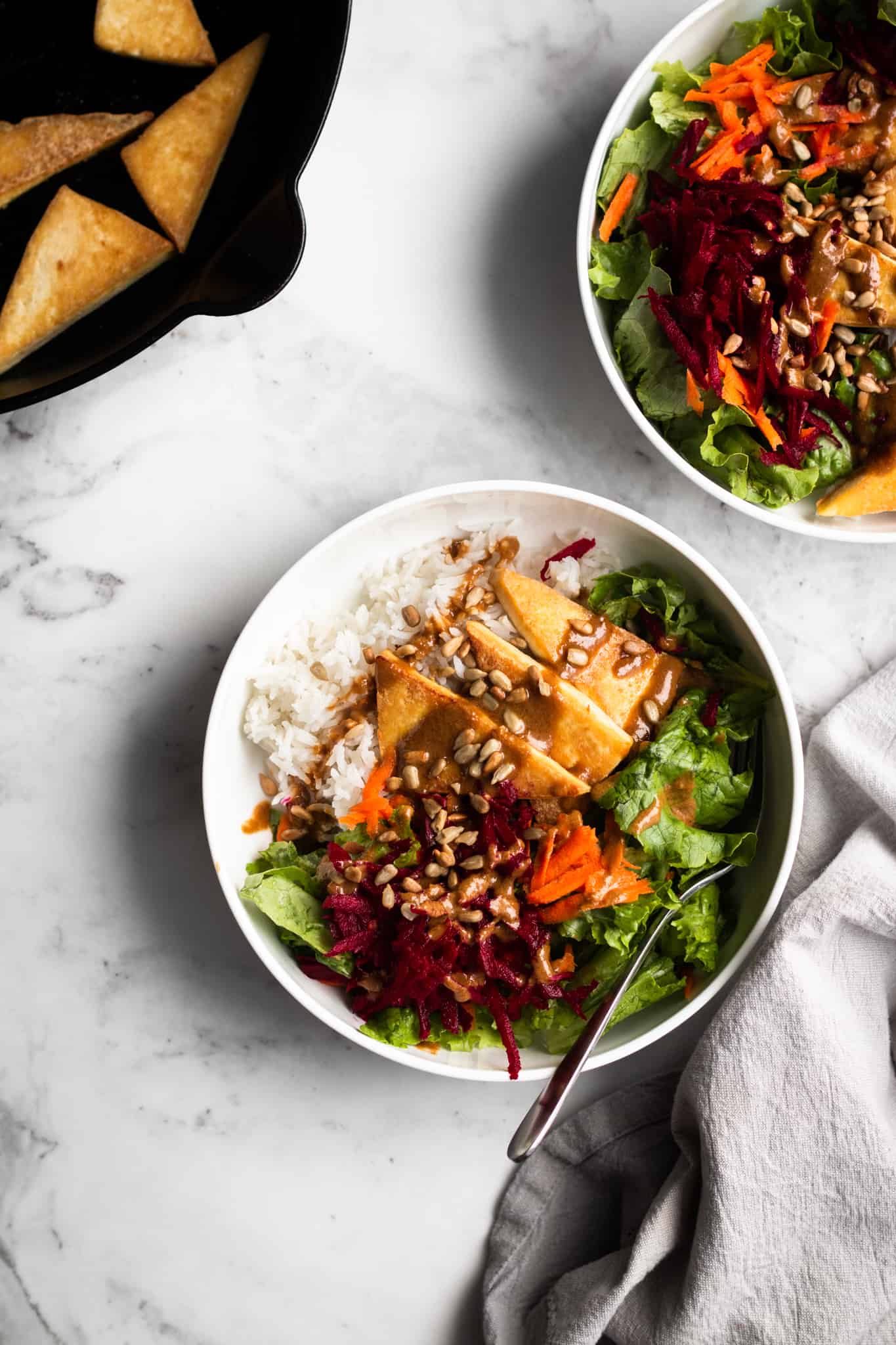
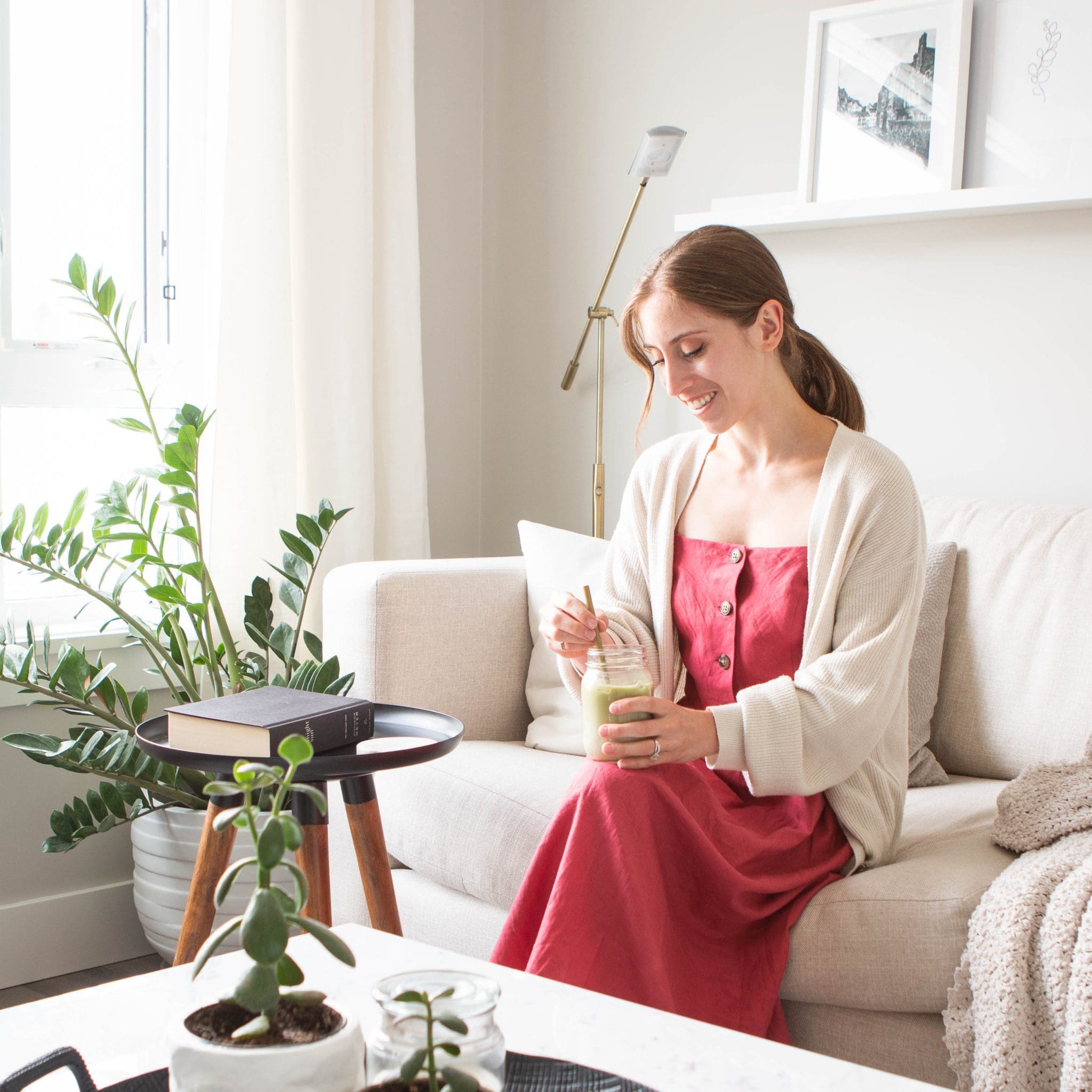
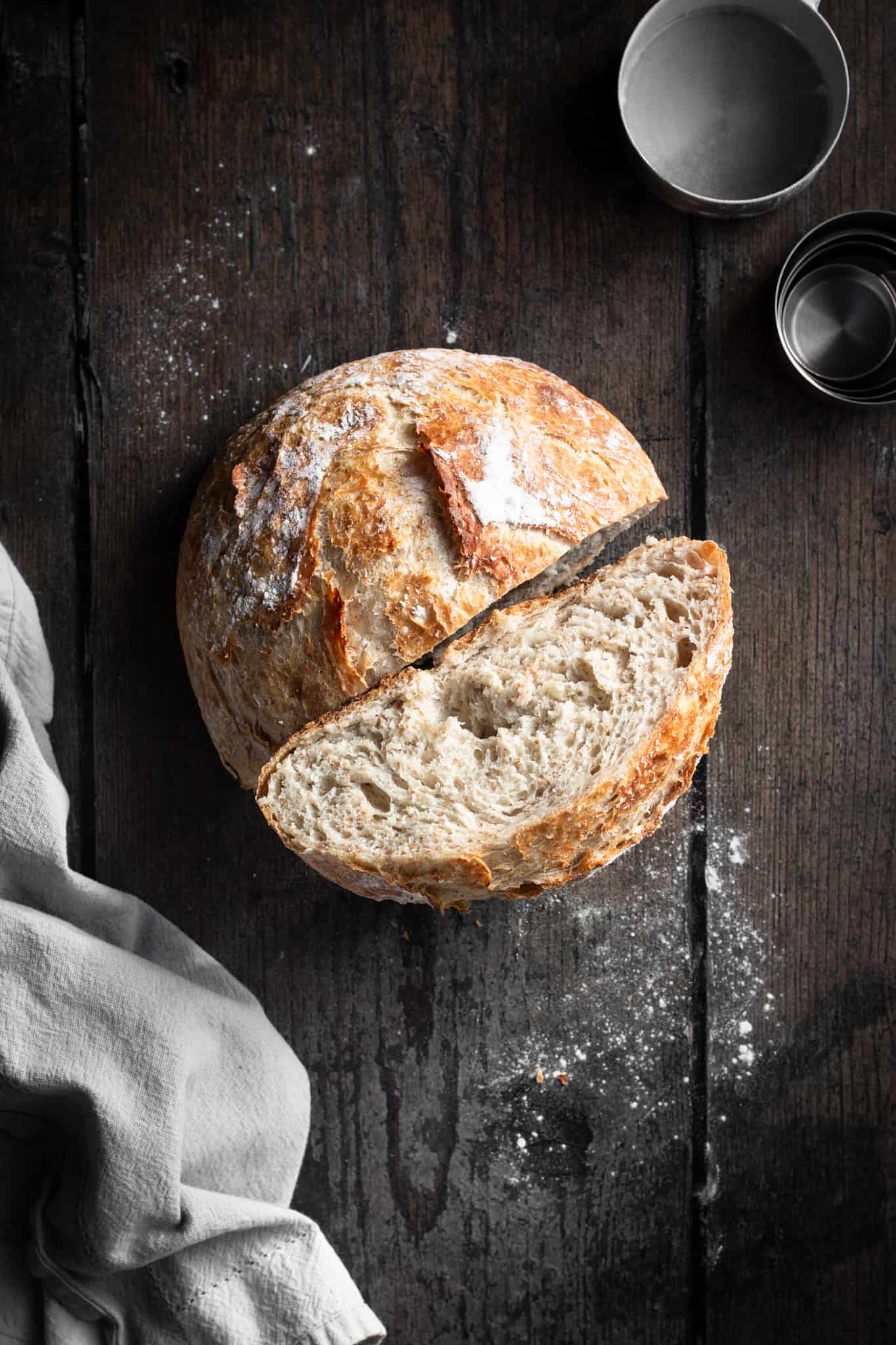
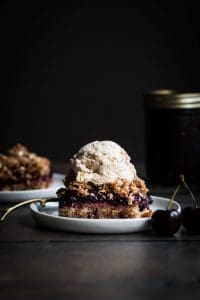

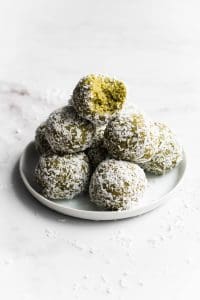
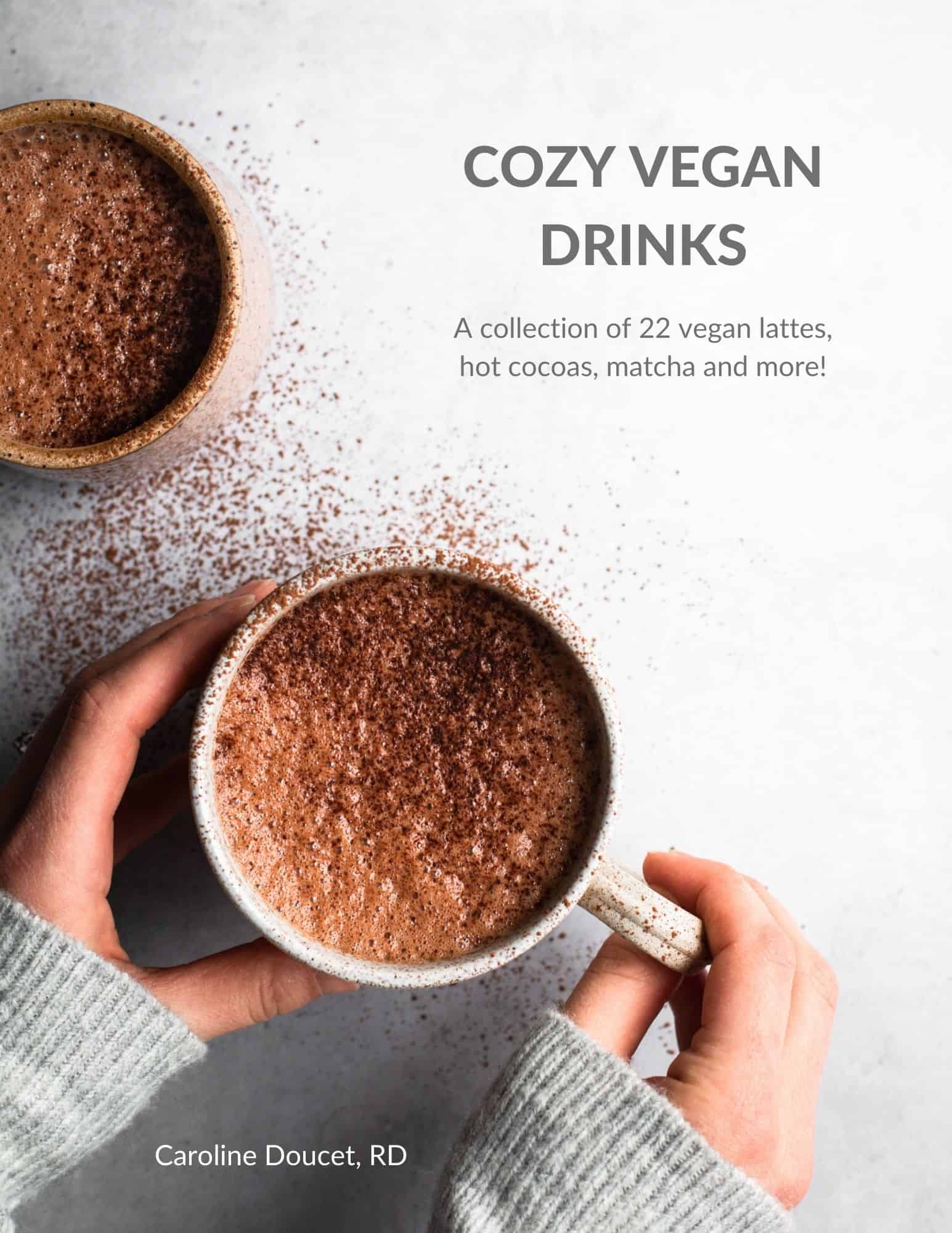
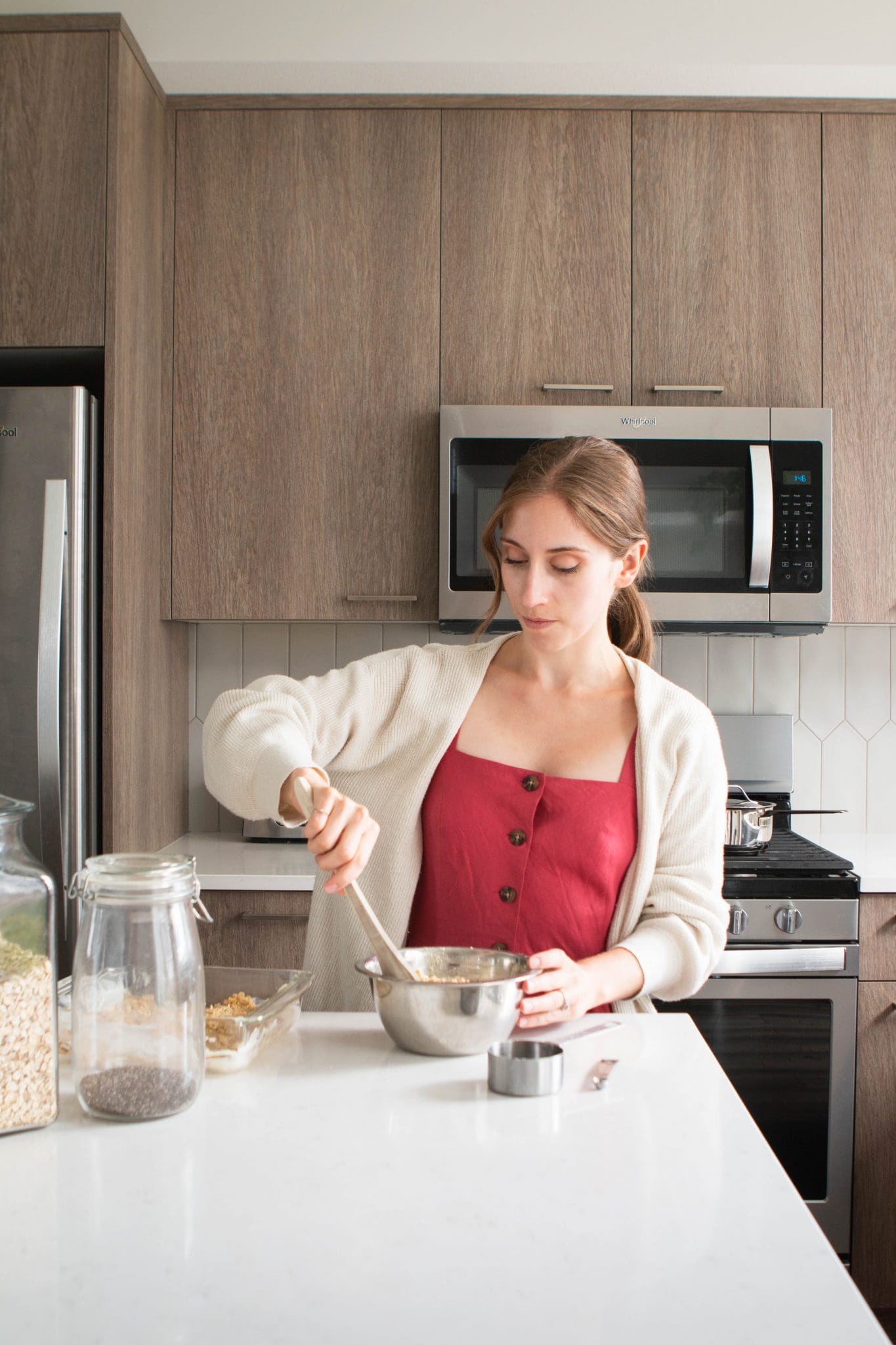
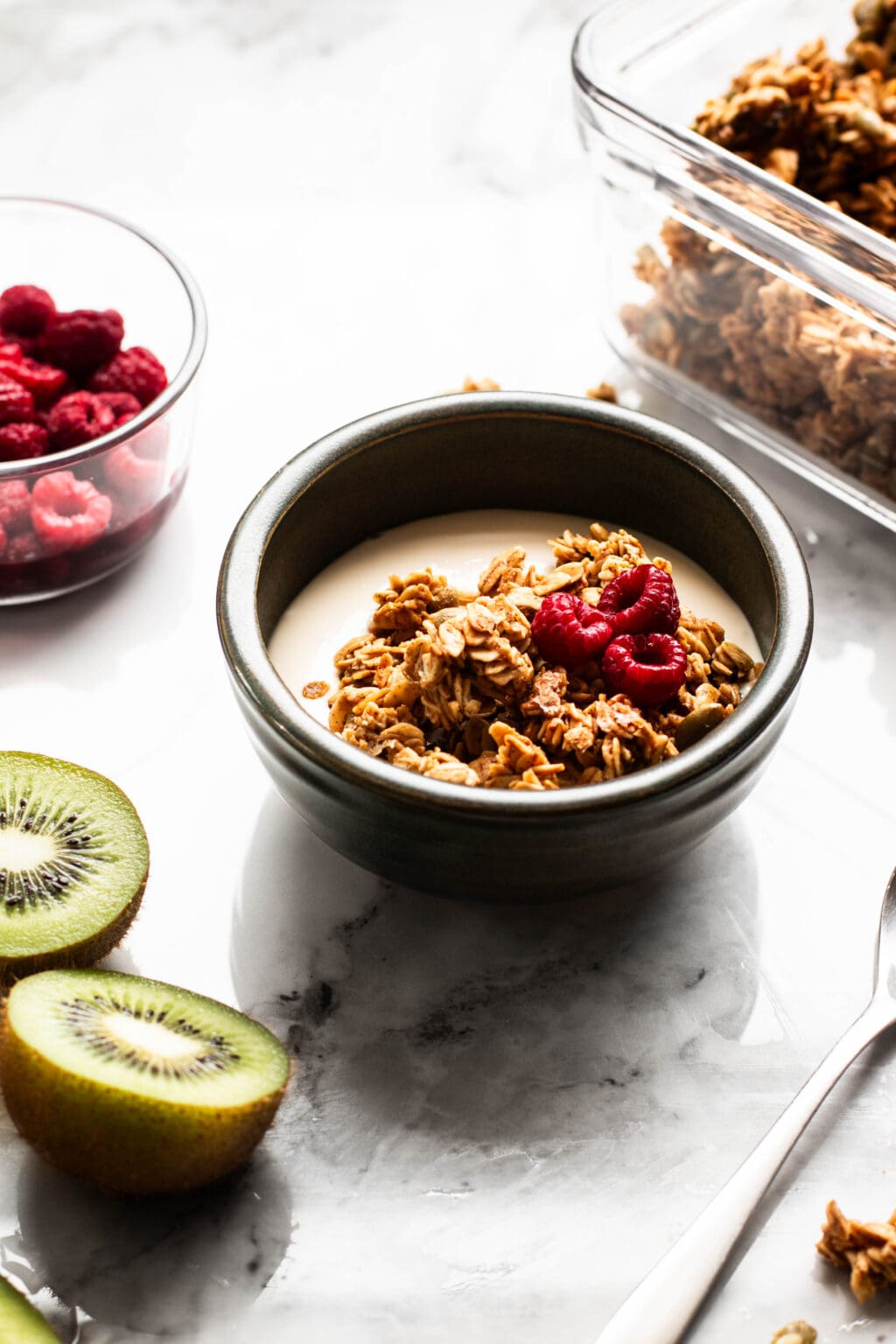
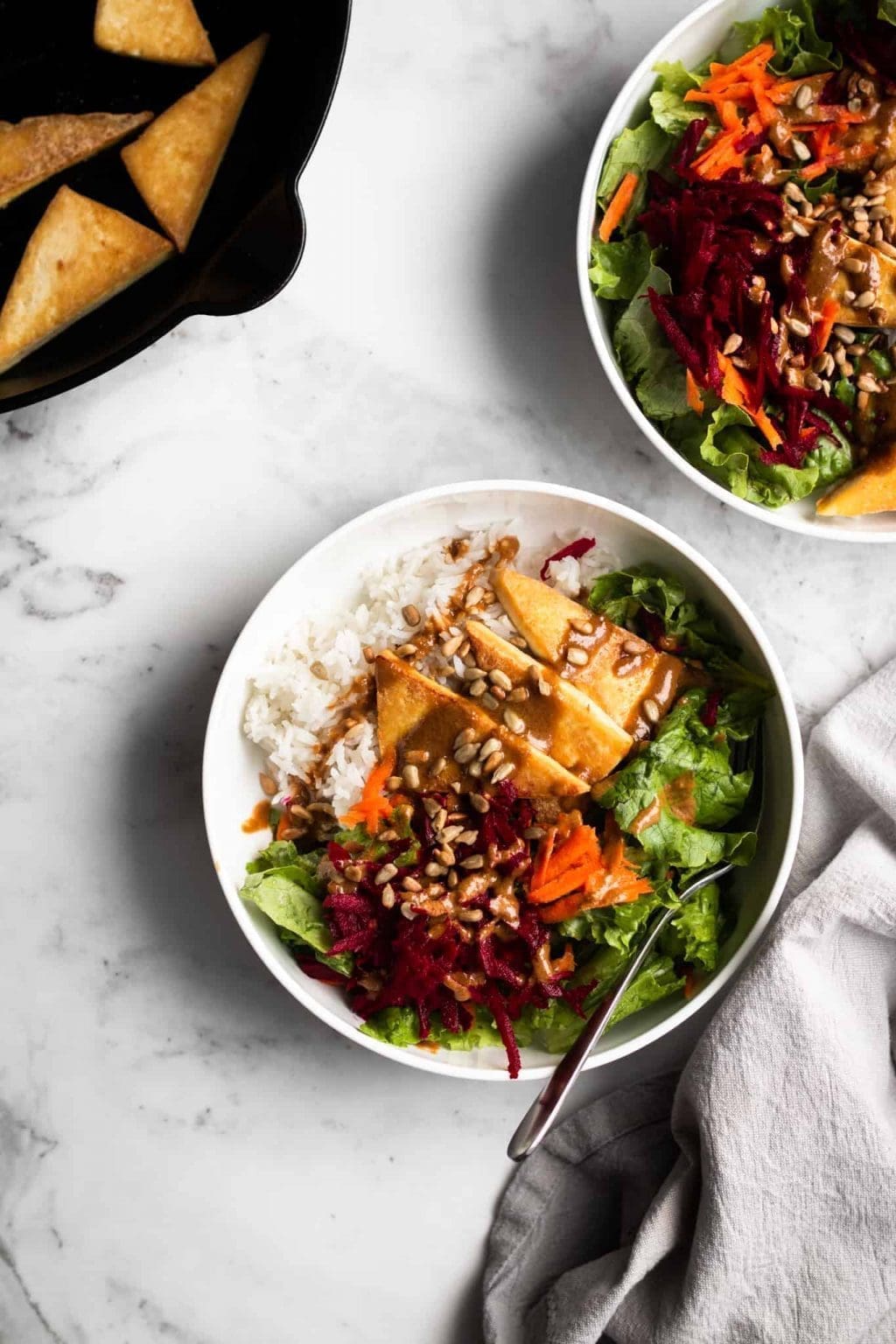
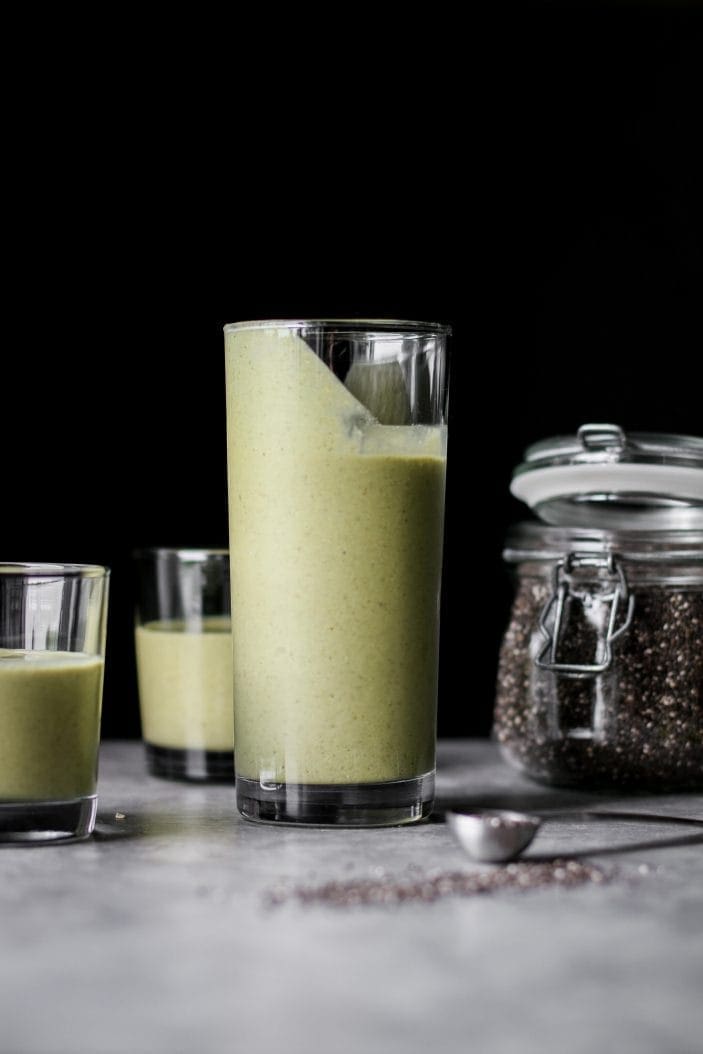
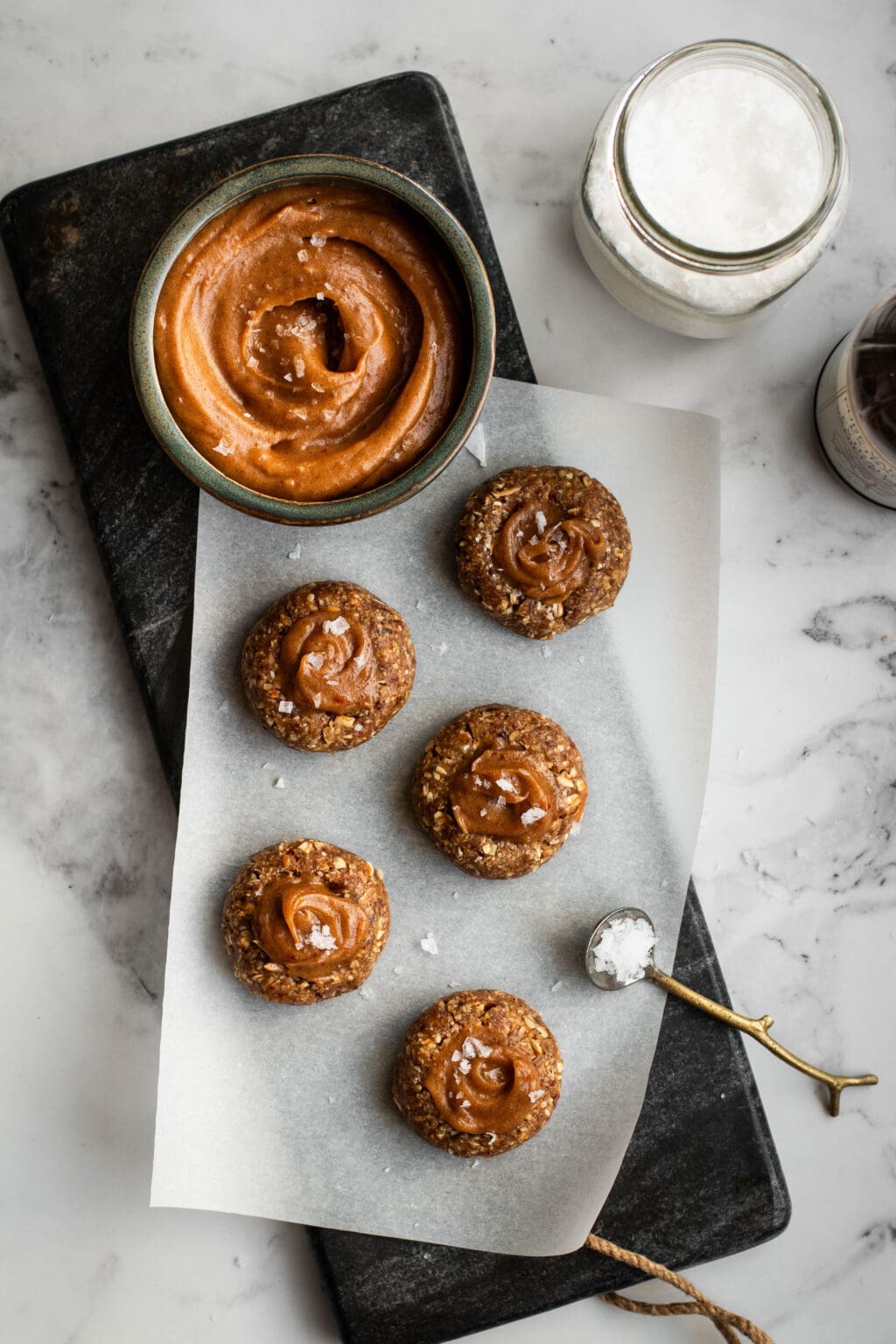
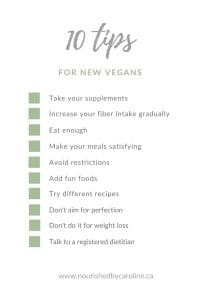
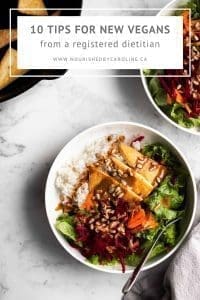
Leave a Reply